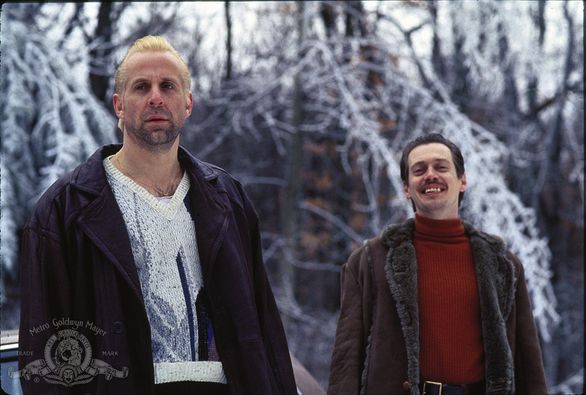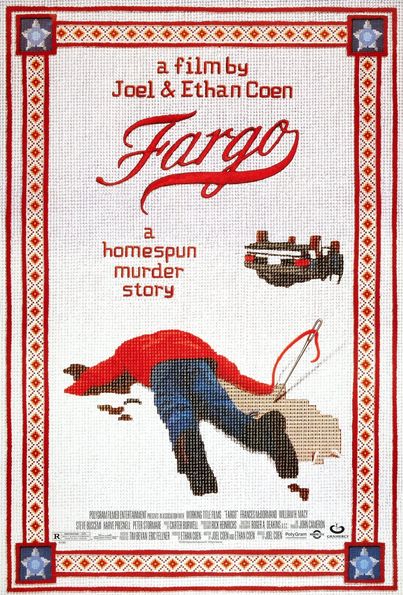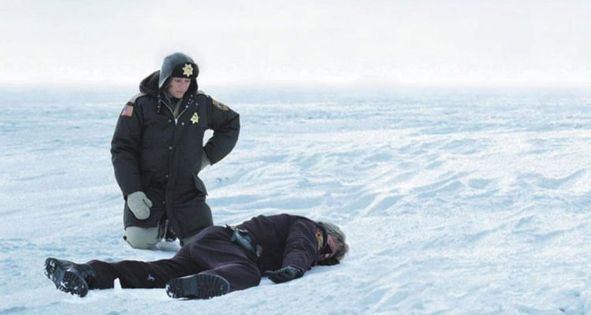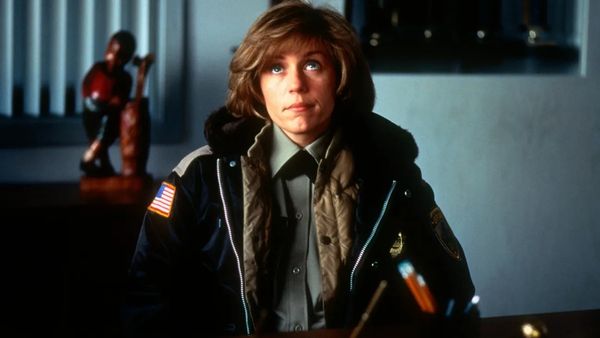Fargo (1996)

Fargo is a critically acclaimed black comedy crime film directed by Joel and Ethan Coen, released in 1996. Set against the stark, snowy landscape of Minnesota, the film masterfully blends elements of humor, suspense, and moral ambiguity, creating a unique and compelling narrative. Starring Frances McDormand, William H. Macy, and Steve Buscemi, Fargo has become a classic, known for its distinctive characters, sharp dialogue, and exploration of themes such as greed, violence, and the human condition.
The story begins with Jerry Lundegaard (William H. Macy), a struggling car salesman who hatches a desperate plan to solve his financial troubles. He hires two criminals, Carl Showalter (Steve Buscemi) and Gaear Grimsrud (Peter Stormare), to kidnap his wife, Jean (Kristin Rudrüd), hoping to extort a ransom from his wealthy father-in-law. However, Jerry’s plan quickly spirals out of control, leading to a series of violent and unforeseen consequences.

Frances McDormand delivers a standout performance as Marge Gunderson, the pregnant police chief investigating the ensuing crimes. Marge is portrayed as a competent and morally grounded character, whose unwavering dedication to her job contrasts sharply with the chaos surrounding her. Her calm demeanor and folksy charm make her a relatable and endearing protagonist, and McDormand’s performance earned her an Academy Award for Best Actress.

The Coen Brothers’ screenplay is notable for its clever use of language and regional dialects, which adds authenticity to the characters and their interactions. The film’s dialogue is filled with quirky exchanges that balance humor and tension, effectively capturing the essence of Midwestern culture. The characters are richly developed, each contributing to the film’s exploration of morality and the absurdity of human behavior.

Visually, Fargo is striking, with Roger Deakins’ cinematography showcasing the bleak beauty of the Minnesota winter landscape. The snow-covered fields and desolate towns create an atmospheric backdrop that enhances the film’s themes of isolation and existential dread. The stark contrasts between the serene exterior and the violent events that unfold serve to heighten the film’s tension and dark humor.

One of the film’s central themes is the exploration of moral ambiguity and the consequences of greed. Jerry Lundegaard’s desperate actions stem from his desire for wealth and status, but they ultimately lead to tragedy and chaos. The Coen Brothers skillfully illustrate how ordinary people can be driven to commit heinous acts when motivated by desperation and greed, prompting viewers to reflect on the nature of morality and the human condition.
Fargo also features a richly crafted supporting cast, including John Carroll Lynch as the affable but dim-witted cop and Steve Park as a hapless convenience store clerk. Each character contributes to the film’s darkly comedic tone and its exploration of the absurdities of life.
Upon its release, Fargo received widespread critical acclaim and won numerous awards, including two Academy Awards for Best Original Screenplay and Best Actress. Its unique blend of humor, drama, and crime has solidified its status as a modern classic, influencing countless films and television shows.
In conclusion, Fargo is a masterful film that deftly combines elements of crime, comedy, and character study. Through its compelling narrative, memorable performances, and sharp dialogue, the Coen Brothers create a rich tapestry that explores the complexities of human nature and morality. The film’s distinctive style and darkly humorous tone make it a standout entry in the canon of American cinema, inviting viewers to ponder the absurdities of life and the choices that define us.











